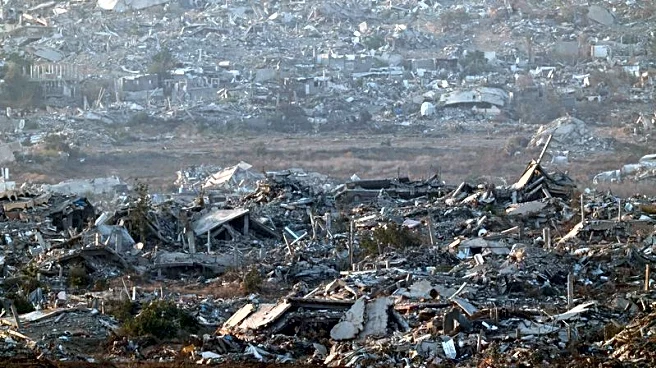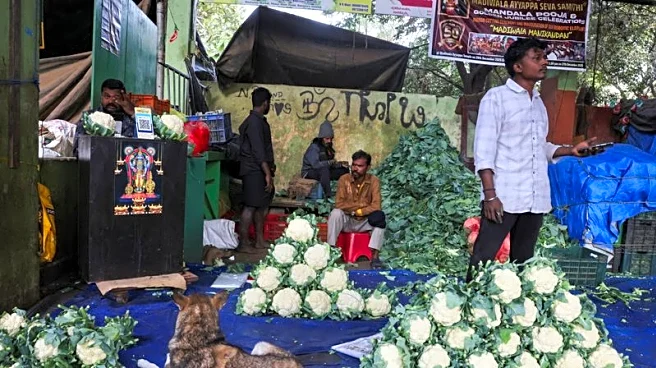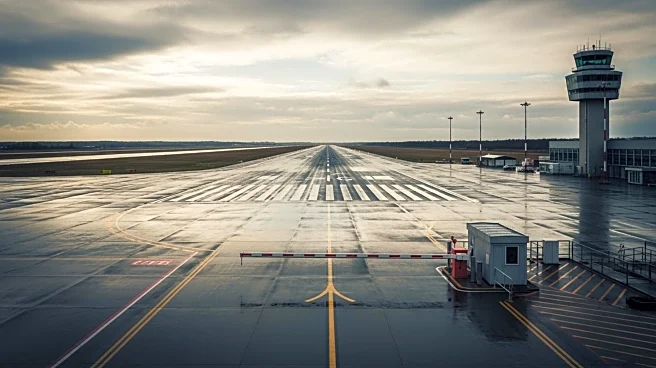Rapid Read • 8 min read
The International Crisis Group has raised concerns over the ongoing humanitarian crisis in Gaza, emphasizing the urgent need for a ceasefire and the opening of aid channels. Recent negotiations between Israel and Hamas, facilitated by Qatar in Doha, have stalled, with both parties unable to agree on the terms of a ceasefire. Hamas demands that the ceasefire lead to a long-term truce, while Israel views it as a temporary pause in hostilities. The Crisis Group criticizes the diplomatic impasse, highlighting the dire conditions faced by Gaza's 2.1 million residents, who are suffering from severe malnutrition and lack of medical supplies due to the blockade. The organization calls for immediate action to prevent mass mortality, urging Israel to allow humanitarian aid into the region.
AD
The situation in Gaza has significant implications for regional stability and international relations. The humanitarian crisis not only affects the immediate well-being of millions but also poses a challenge to global diplomatic efforts aimed at achieving peace in the Middle East. The inability to reach a ceasefire exacerbates tensions and undermines trust between conflicting parties, potentially leading to further violence. The Crisis Group's call for action highlights the responsibility of international actors to leverage their influence to facilitate aid and negotiate peace. Failure to address these issues could result in prolonged suffering and instability, affecting geopolitical dynamics and humanitarian efforts in the region.
The international community, including influential countries and organizations, may increase pressure on both Israel and Hamas to reach a ceasefire agreement. Humanitarian organizations are likely to intensify their advocacy for opening aid channels to Gaza. Diplomatic efforts may focus on finding a compromise that addresses the security concerns of both parties while ensuring the delivery of essential supplies to civilians. The outcome of these efforts will be crucial in determining the future of peace negotiations and the humanitarian situation in Gaza.
The ongoing crisis in Gaza underscores the complex interplay between humanitarian needs and political negotiations. The situation raises ethical questions about the use of blockades as a tool in conflict and the responsibility of international actors to intervene in humanitarian crises. Long-term solutions will require addressing the root causes of the conflict, including historical grievances and political aspirations, to prevent recurring cycles of violence and suffering.
AD
More Stories You Might Enjoy












